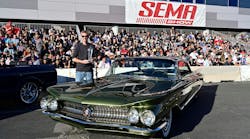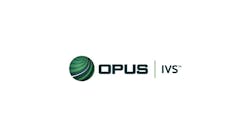Two years ago a collection of lawsuits alleging that insurance companies colluded to fix prices for collision repair reimbursements were dismissed by a federal judge. A decision by an appeals court may revive those cases and several others claiming that insurers are in violation of the Sherman Antitrust Act.
In September, the Eleventh Circuit Court of Appeals reversed Middle District of Florida Judge Gregory Presnell’s dismissal of eight collision shop lawsuits alleging antitrust violations on the part of dozens of insurance companies. The cases were dismissed late in 2015.
Shops in Kentucky, Virginia, New Jersey, and Missouri filed a consolidated appeals brief. In a 2-1 ruling on Quality Auto Painting v. State Farm, et. al, the court said that the plaintiffs had supplied sufficient allegations to indicate that the discovery process would reveal evidence of an “Illegal agreement.”
Judge Presnell originally dismissed the claims, finding that the evidence did not indicate an agreement among the insurance companies. Anti-trust cases must prove that the parties engaged in activities that went beyond parallel conduct that may have been driven by common businesses practices.
Other body shop cases dismissed by Presnell were earlier appealed to the Eleventh Circuit but dismissed on procedural grounds.
In the Eleventh Circuit ruling, the court indicated that the anti-trust claims were supported by the adoption of a uniform price for repair services (even though there are variables involved that should have created different prices), and uniform practices by the insurers related to repair processes.
The ruling has breathed new life into similar suits that have been in limbo since 2015. Other shops are also moving forward with suits that may be combined with the cases in the Middle District of Florida.
Pennsylvania-based Professionals Auto Body has filed two different lawsuits against 32 insurance companies, claiming that they have violated antitrust laws. The company is asking form more than $8 million in damages including underpayments and interest.
Leif’s Auto Collison Centers in Portland, Ore., filed suit against GEICO in November alleging the company had conspired with shops in its DRP program to fix prices and drive business away from Leif’s.
The shop previously took part in the 2014 multi-state suit, but the case was closed after the 2015 dismissals. The new suit is slightly different than the first in that Leif’s is accusing GEICO of conspiring with DRP shops to boycott the shop.
Take on Big Paint Jobs |
|

|
Adding an oversized paint booth to your shop is a big investment for a potentially big return. This free whitepaper has everything you need to consider ahead of time. |

|
|
GEICO has also filed suit against Leif’s claiming defamation, and that Leif’s employees have used intimidation, delays and other tactics to prevent adjusters from inspecting vehicles.
Leif’s original case against State Farm (along with three other cases) could be re-opened based on the Eleventh Circuit decision. Other amended lawsuits may also be revived by the decision.
The insurance companies named in the case have asked for a rehearing en banc by the entire Eleventh Circuit panel of 12 judges. That request is still pending.
In October, the Washington Legal Foundation filed an amicus brief with the Eleventh Circuit asking the court to provide a clear threshold for antitrust conspiracy claims under the Sherman Act. According to the WLF:
“The panel’s reversal allows an antitrust complaint to allege mere parallel conduct among competitors as a sufficient basis for pleading an illegal agreement among those competitor defendants. WLF led its brief out of grave concern for the amount of uncertainty the decision creates for market participants and other stakeholders. In Twombly v. Bell Atlantic Corp., the Supreme Court emphasized the need for plaintiffs to assert more than mere parallel conduct among competitors to state an antitrust conspiracy, as this conduct alone could just as well be the result of rational and competitive business strategy prompted by the free market.”

